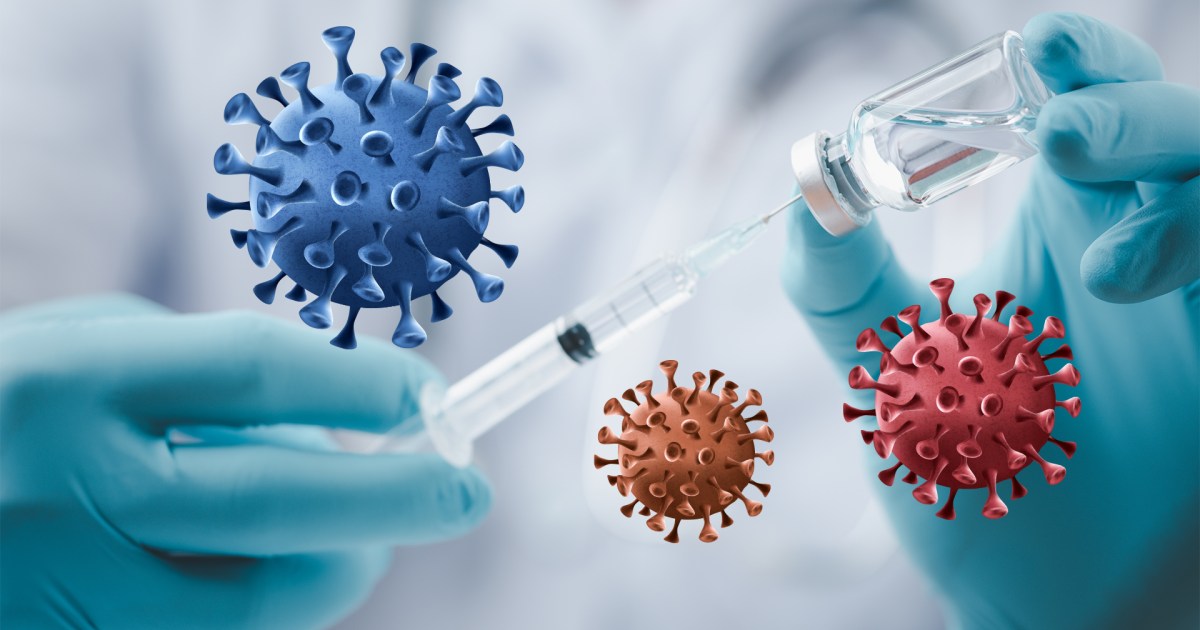Vaccination helps reduce the risk of infection with Covid-19, but does not guarantee complete immunity from exposure to the virus.
What happens if I get infected after getting the vaccine?
In a report published by the American Health Digest website, writer Gina Demir says that humanity has previously succeeded in eliminating some diseases and epidemics completely through effective vaccines and vaccinating the largest percentage of people, but the world has not yet reached this point in its endeavors. to eradicate the COVID-19 pandemic.
After receiving one of the Corona vaccines, the possibility of infection remains, but the symptoms will be milder than what would happen without vaccination.
The Director of the Centers for Disease Control and Prevention, Dr. Rochelle Walinsky, confirms that 99.5% of Covid-19 deaths as of early July occurred in people who did not receive the vaccine, and that 93% of vaccinated people do not need to be hospitalized in the event of infection with the virus. .
Symptoms of vaccine penetration infection
A study conducted by the ZOE COVID app shows that those who were vaccinated reported symptoms of shorter duration, indicating that their cases are less severe and that they recover more quickly.
Another study published in the "New England Journal of Medicine" found that those who were vaccinated had a lower viral load.
These results make sense because the vaccinator's immune system has had something like training to recognize and respond to the coronavirus.
The writer mentions that the most common symptoms in cases of "overflow of the vaccine" include headache, runny nose, sneezing, sore throat and loss of sense of smell, while the vaccinated person is less likely to have a persistent cough, which is one of the main symptoms in those who have not been vaccinated or who have received a single dose.
Similarly, the Zoe Covid study found that unvaccinated people are more likely to develop a fever.
Some vaccinators may experience symptoms that last more than 6 weeks after infection, and although these cases are rare, they show the importance of following health recommendations to avoid infection with the Corona virus, such as making sure to wear face masks indoors.
Also, the vaccinator can spread infection among those around him, including those who are not allowed to receive the vaccine or who do not have good immunity, so it is advised to stay at home and conduct a Covid-19 examination as soon as you feel some symptoms of the disease, and enter a 10-day quarantine If the test result is positive.
contradictory results
The results of the Health Digest report differ from the results of a previous study;
In a previous report to the American newspaper "New York Times", the writer "Apurva Mandavili" said that new research showed that those who received the vaccination and were infected with the "Delta" mutant carry huge amounts of the virus at the level of the nose and throat.
This contrasts with what scientists observed in the recipients of the vaccination and those infected with previous strains of the virus, as it seemed that they did not pose a threat in terms of transmitting infection to others.
This means that people with "penetration infection" - that is, infection with the Corona virus despite receiving two doses of the vaccine - from the delta mutant may transmit the infection just like the unvaccinated, even if they do not show symptoms.
Accordingly, the author indicated that those who have received two doses of the vaccine, and live with young children, elderly parents, or friends and family members with weakened immune systems, will need to be careful, especially in societies where the infection is highly prevalent.
It is still not clear how common penetration infections are and how long the virus remains in the body in these cases.
According to Dr. Walinsky, penetration infections are rare, and the unvaccinated are responsible for the bulk of transmission.
Data reviewed by the Centers for Disease Control and Prevention indicates that people who received both doses of the vaccine can transmit the virus.
The conclusions indicate that vaccinators who have contracted the virus must be tested, even if they feel well (in Britain, for example, vaccinators who have contact with an infected person must isolate themselves for 10 days).
The writer stressed that the new data does not mean that vaccines are ineffective, as they still prevent the development of the condition of the injured to the worst and death, and those with penetrating infection rarely end up in the hospital.

